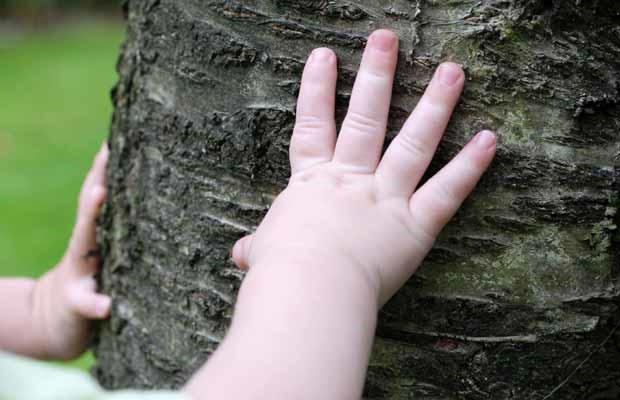
In early child development, touch forms experiences that nourish us, calm us, and create bonds of attachment with others.
As our children explore through touch, they begin to learn, adapt and adjust to the environment. This way they learn to play and to care for themselves, which promotes emotional wellbeing, and they also start to build appropriate behaviour responses.
What is the tactile sense?
Our tactile sense is the system we use to recognise and respond to touch, when we explore our environments and interact with others. It is the largest of all our sensory systems and is made up of millions of receptors found in the skin that detect sensations such as touch, pressure, texture, temperature, and pain.
“To put the importance of our tactile sense into perspective, we only have to think of the special mother-infant bond, of how much we rely on touch when caring for our babies, and how often we use touch to calm and engage with our babies,” explains Jade Antunes Shield, occupational therapist and Clamber Club expert.
What if my child doesn't like touch?
Touch input plays a modulatory role in regulating and organising the brain, keeping it balanced and well nourished.
“Each and every person has a unique neurological makeup, which determines our thresholds for tactile sensations and what kind of touch we like and don't like, and how much or how little touch we enjoy and are able to tolerate,” says Antunes Shield.
“For children with difficulty modulating tactile input, many touch experiences are not enjoyable, and some may even be unbearable,” says OT and founder of Clamber Club, Liz Senior.
“When this impacts on daily routines and tasks, a modulation disorder referred to as tactile defensiveness can be diagnosed,” she adds.
Children with tactile defensiveness may exhibit a cluster of behaviours, including a dislike of certain clothing fabrics, avoidance of messy play or messy food, discomfort with close body contact, and an inability to endure self-care activities such as brushing teeth.
Because touch also tells the brain about qualities such as quantity, location, size and shape, it's important to develop skills such as oral motor skills, coordinated movement, body awareness, motor planning, and hand functions.
Children with poor tactile discrimination have difficulty understanding and interpreting the sensations they experience through touch.
“For these children, gross and fine motor tasks may be very challenging, as they don't receive clear messages about the relationship between their bodies and the external environment,” explains Senior.
They may also be messy eaters, struggle with independent dressing and eating activities, and often find new tasks very challenging.
Activities to develop your child’s tactile sense:
Babies:
- Cover flooring and equipment with different textured fabrics, and encourage them to roll, sit and crawl on and over them during playtime.
- Encourage water play during bathtime and swimming lessons.
- Provide access to toys and foods that can be manipulated in their hands, and chewed.
Activities for toddlers:
- Crawl, roll, and “swim” through mattresses, blankets, ball pits, textured tunnels, and foam mats.
- Provide messy play with finger paint, instant pudding, jelly and custard etc.
- Provide feely boxes (wet and dry) with seeds and beans, cooked spaghetti, jelly etc.
Activities for pre-schoolers:
- Build obstacle courses that involve crawling and creeping over different tactile equipment such as tactile mats (carpet, sandpaper, cotton wool, sponge, sand) and textured tunnels.
- Provide jump and crash opportunities and use various fillings for crash pads such as polystyrene, foam/sponge, cut-up pool noodles and so on.
- Build shapes, numbers and letters with crazy clay, silly putty, playdough and pipe cleaners.
These fun activities will help your child to develop their brains through touch.




 Publications
Publications
 Partners
Partners














